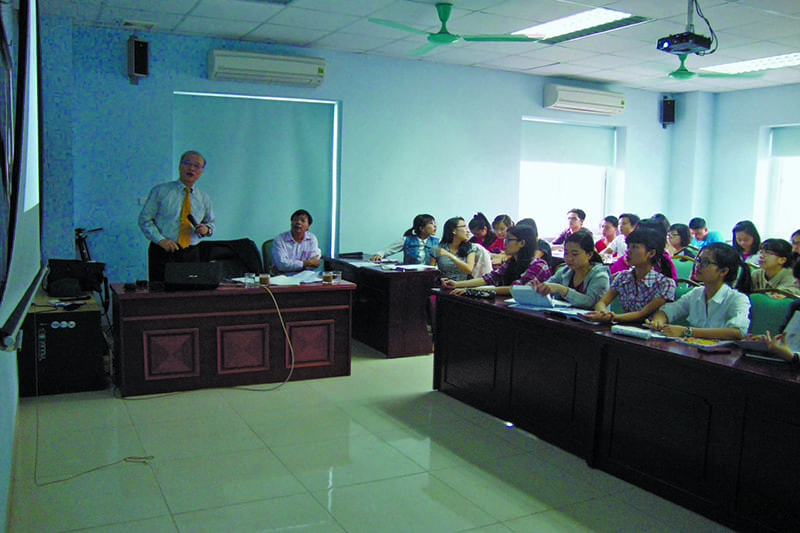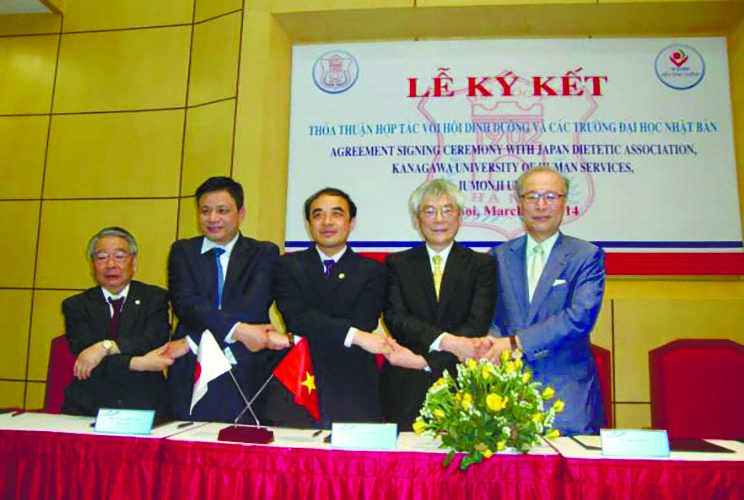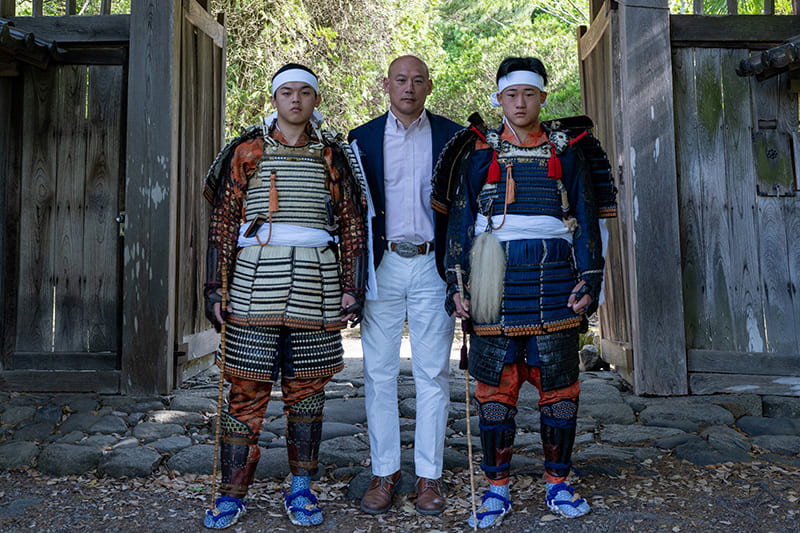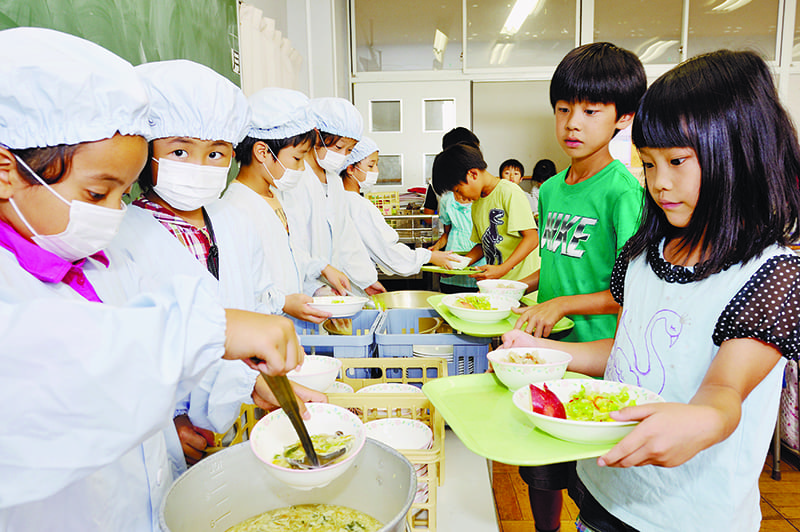December 16, 2021
Japan helping its neighbors address nutrition problems

PHOTOS: JAPAN DIETETIC ASSOCIATION
Global leaders have committed to end all forms of malnutrition by 2030 as part of the United Nations’ sustainable development goals (SDGs), but it still remains a major challenge.
Ahead of the Tokyo Nutrition for Growth (N4G) Summit 2021 on Tuesday and Wednesday. Japanese nutrition experts say Japan’s know-how could play a role in helping other nations address their nutrition issues.
Teiji Nakamura, president of both the Japan Dietetic Association and Kanagawa University of Human Services, said one of Japan’s biggest successes has been to make the job of dietitian an established occupation.
“Japan has one of the highest ratios of dietitians per population in the world,” he said.
According to the health ministry, there were over 250,000 registered dietitians in Japan as of 2020. Other countries have nutritional specialists, too, but they usually work in academic circles or at hospitals, and so otherwise healthy people rarely engage with them, Nakamura said.
Japan’s expertise in the field, and long experience of addressing nutrition issues domestically, means it can now export nutrition improvement programs to other Asian countries.
Vietnam was one of the first to receive support. While some people in Vietnam still suffer from undernutrition and low body weight, obesity and diabetes caused by an unbalanced diet were also becoming issues.
Nakamura, along with the private sector and the Japan International Cooperation Agency, tried to establish a program to train dietitians in collaboration with the Vietnam National Institute of Nutrition.
With the support of professionals from Nakamura’s association, his university and Jumonji University, the project bore fruit in September 2013 when Vietnam’s first four-year bachelor’s degree in nutrition was offered at Hanoi Medical University.
“To create a training program, a total of nearly 40 Japanese professionals gave lectures at Hanoi Medical University. We lectured in English, local educators translated the lectures into Vietnamese and they then created textbooks based on the lectures,” Nakamura recalled.
As a result, in 2015, the Vietnamese government drafted a job code for dietitians, and for the first time dietitian was recognized as an occupation. The country’s first 43 dietitians started working in 2017.
Another project using Japan’s know-how is being led by the Nutrition Japan Public Private Platform (NJPPP), a public-private partnership that promotes nutritional improvement projects in developing countries, including Indonesia, Cambodia, Vietnam and Myanmar.
In 2016, NJPPP visited Indonesia to conduct research on the dietary environment at factories. A project was launched in 2019 to encourage workers at Japanese factories in the Kota Deltamas industrial complex to adopt healthy dietary habits.
Previously, those factories provided meals containing little vegetable content and lots of fried foods. Under the project, the menu was redesigned to offer a better balance of fats, protein and energy and to increase vegetable content, according to Ryuji Yamaguchi, executive director of NJPPP.
In 2018, an NJPPP project in Cambodia found young women of child-bearing age had low levels of folic acid, which increases the risk of neural tube defects in newborns.

Jumonji University, Hanoi Medical University and the Vietnam National Institute of Nutrition signed an agreement on academic exchanges in March 2014.
PHOTOS: NJPPP
“Young Cambodian women eat a lot of rice, but they eat very few side dishes. So, we created fortified rice with essential micronutrients, and gave the rice to a group of female workers and monitored them for three months,” Yamaguchi explained.
Yamaguchi said their efforts bore fruit in both countries by promoting changes in dietary habits.
He and The Japan Dietetic Association will each be holding side events during the N4G Summit.
Both Yamaguchi and Nakamura emphasized that it is important to provide assistance that is sustainable and responsive to local needs. “It is crucial to understand local food culture, so people will accept the change,” Yamaguchi said.
Nakamura also said providing money to a country suffering from poverty and undernutrition only saves it temporarily and does not represent a sustainable solution.
“What happens if the assistance is halted in five to 10 years? That is why Japan is providing education and trying to nurture human resources,” he said. “If you want to make nutritional improvement in a country, you need to foster nutritional specialists.”
Return to Sustainable Japan Magazine Vol. 7 article list page


















